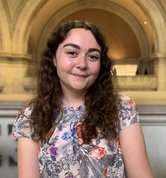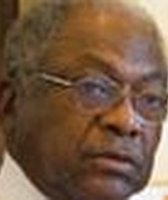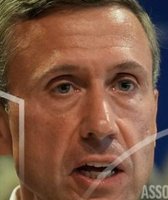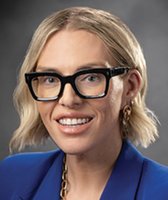Get PolitiFact in your inbox.
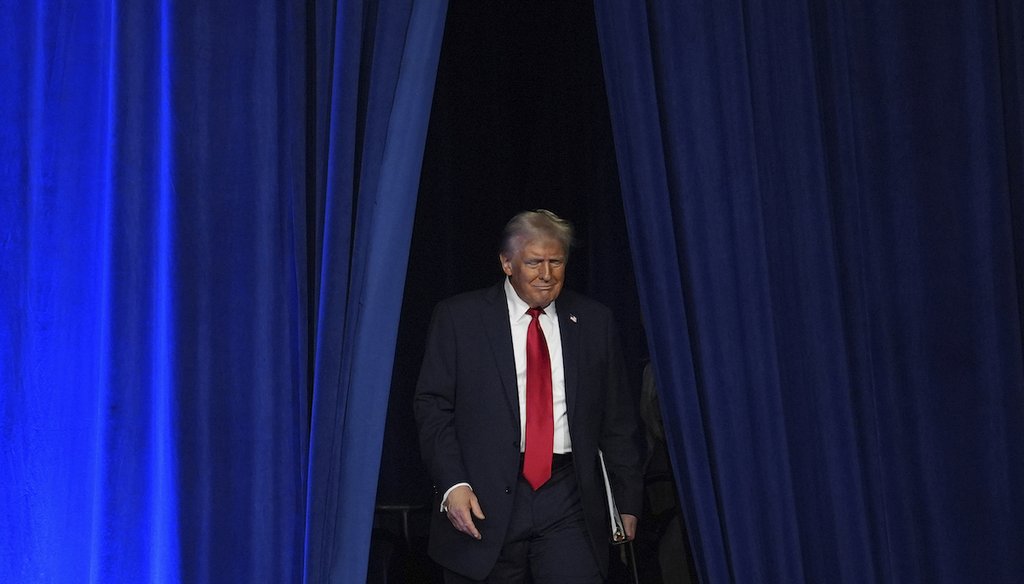
Republican presidential nominee former President Donald Trump arrives at an election night watch party at the Palm Beach Convention Center, Wednesday, Nov. 6, 2024, in West Palm Beach, Fla. (AP)
If Your Time is short
-
President-elect Donald Trump and his supporters continually pushed false claims about election fraud in the lead-up to and on Election Day. PolitiFact debunked many of these claims.
-
Trump said on Election Day that there was “massive cheating” in Philadelphia. Officials from the city district attorney and police department said they didn’t know what he was talking about.
-
Claims about voter fraud are a political strategy. When Trump won, his remarks that night made no mention of fraud.
Leading up to Nov. 5, President-elect Donald Trump hammered home this message: The cheat was on in Pennsylvania. And by Election Day, Philadelphia was ground zero. Police were coming to stop it, he said.
"A lot of talk about massive CHEATING in Philadelphia," Trump said about three hours before the polls closed in a one-sentence post on Truth Social. "Law Enforcement coming!!!" An hour later he declared that "heavy law enforcement is there!"
Philadelphia police, Republican City Commissioner Seth Bluestein, Philadelphia District Attorney Larry Krasner and the state election office all said they had no idea what he was talking about.
Days earlier, Trump had called on law enforcement to act and said, "Pennsylvania is cheating, and getting caught, at large scale levels rarely seen before."
Trump also spun a real investigation of 2,600 Lancaster County voter registration forms to declare that his side had caught them "cold" with 2,600 "votes" by the same person. That too was False.
Trump’s alarmist rhetoric was not surprising. He had exploited myths about nationwide voter fraud since his first campaign. Fraud by noncitizens. Fraud by Democrats. Fraud orchestrated under the guise of COVID-19 protocols. But in the 2024 election’s homestretch, his statements showed he was hyperfocused on Pennsylvania, the battleground state with the highest number of electoral votes that polls showed was too close to call.
All that talk of fraud ended when the results started coming in showing Trump was winning.
Trump said nothing about it. The social accounts of the Republican National Committee and Elon Musk quieted down. Gone were their signature phrases that the election had to be "too big to rig" or that supporters should "swamp the vote" to overcome fraud. After media outlets projected Trump the winner, Trump delivered an early morning victory speech that included no claims about voter fraud.
"It's time to put the divisions of the past four years behind us," said a Republican Party headquarters email the day after Election Day.
Could that mean Trump is abandoning his claims of 2024 election fraud?
"The question is what will he say about PA in the next few days and weeks?" Kim Wyman, a Republican and Washington state’s former top election official, wrote in an email to PolitiFact. Now a senior fellow at the Bipartisan Policy Center, Wyman said, "Will he continue to accuse election officials and the other side of cheating, or will he just let it go?"
The day after the election, we asked Trump’s campaign spokespeople whether Trump still believes there was fraud in Philadelphia or elsewhere in Pennsylvania and for his evidence. We did not get a response to our questions. The campaign also didn’t provide evidence of cheating when we asked on Election Day.
One thing we do know: Trump won in 2016 and he still questioned the integrity of the votes.
"In addition to winning the Electoral College in a landslide, I won the popular vote if you deduct the millions of people who voted illegally," Trump tweeted three weeks after he won in 2016. The claim was ridiculous. But it was not original. His statement followed social media posts that he won the popular vote (he didn’t) and that millions of noncitizens had voted (they hadn’t).
Newly elected, Trump formed a voter fraud commission that fizzled several months later after no findings of mass fraud. But Trump had political motivations in 2017 for continuing to talk about voter fraud: He wanted to campaign on the issue again. Now that Trump has presumably run his final political campaign, it’s unclear whether continuing the narrative would serve his interests.
Trump made some campaign promises that stem from his voter fraud narrative, such as counting all votes on election night — something a president can’t control — and requiring paper ballots, which the majority of voters already use.
Voter fraud narratives have survived after election victories before: Florida’s Republican governor, Ron DeSantis, for example, pursued the formation of a voter fraud police force after the smooth 2020 election when Trump won Florida, but at the time DeSantis had sights on the presidency. And many congressional lawmakers who won their own races went on to pursue overturning the 2020 presidential election.
"When candidates and organizations base their fundraising and campaigns on election fraud, they have a vested interest in keeping those narratives going, even when their preferred candidate wins," said Rachel Orey, director of the Elections Project at the Bipartisan Policy Center.
The same thing can be said of people on the left who tell a narrative about voter suppression, Wyman said. "Both narratives help each side energize base voters and raise millions of dollars."
Trump’s victory is not expected to end the conservative movement advocating to change election laws. Cleta Mitchell, a lawyer who played a role in trying to overturn the 2020 results, on Nov. 5 called for a greater push to change state and federal laws including "to permanently protect against noncitizen voting." Congress already banned noncitizen voting in federal elections decades ago.
"To the thousands of election integrity warriors: Thank you," Mitchell said Nov. 6 on X. "You made a huge difference over the past 4 years, with your hard work on elections."
Social media influencers’ strategy may shift
Trump’s supporters helped fuel the false voter fraud narrative and also focused on Pennsylvania. But the day after the election, the once-steady flow of claims started to dry up.
Data from the University of Washington’s Center for an Informed Public showed that X posts about voting machine errors in Pennsylvania — which fueled election fraud claims — surged early on Election Day and then subsided to less than 100 at about 9:45 p.m. EST before continuing to dwindle.
Conservative activist and former Project Veritas leader James O’Keefe shared Nov. 4 a video that he said showed Philadelphia city commissioners telling noncitizens they could vote in the presidential election — which is against federal and state laws. Philadelphia city commissioners told PolitiFact that the video was "selectively edited."
O’Keefe kept the narrative going while election workers tabulated votes by reporting on the ground at Pennsylvania voting centers. At 1:08 a.m. EST, he claimed that less than two hours earlier, a Pennsylvania election judge may have violated state law by counting ballots without oversight.
After news organizations declared Trump the winner in Pennsylvania less than an hour later, O’Keefe stopped posting election fraud claims.
Steven Crowder, another conservative commentator who has pushed false claims of a fraudulent 2020 election, wrote that as late as 1:23 a.m. EST, there were "mysterious" trucks carrying ballots "showing up" in Philadelphia.
Twenty-two minutes later, Crowder celebrated Trump’s victory without further mention of anything questionable unfolding.
Sarah Oates, a University of Maryland political communication professor who specializes in disinformation, said she suspects Trump will spin the election fraud narrative into a problem that he will claim to have fixed. And his supporters who amplified the claims will follow his lead, she said.
"You use the narrative when it works for you," Oates said. "Then you can twist it and turn it. As events happen, you then adapt it and move forward."
One way that national Republicans sought to control the narrative about election security was through lawsuits. Heading into Election Day, 2024 was the most litigated election according to the Democracy Docket’s case database maintained by Marc Elias, a lawyer for Democrats. Of the 295 lawsuits filed this election cycle, the GOP and its affiliates were involved in 123. In Pennsylvania, Republicans filed lawsuits related to the testing of election machines and mail ballot procedures.
How we know Trump’s Pennsylvania fraud claims were false
A day after Election Day, there was still no evidence of the cheating that Trump had alleged.
After Krasner, Philadelphia’s district attorney, invited Trump to provide "any facts to support his wild allegations," Krasner’s spokesperson said more than 24 hours had passed without any response.
"We received zero substantive complaints of voter fraud in Philadelphia yesterday," Krasner’s spokesperson Dustin Slaughter said the afternoon of Nov. 6. The same held true the morning of Nov. 7.
In Pennsylvania, authorities are investigating a situation involving a few counties that received suspect voter registration applications — not ballots.
Lancaster County officials announced in late October that they were investigating 2,600 suspect voter registration applications. Commissioner Ray D’Agostino said at a Nov. 4 meeting that 57% of the applications were legitimate, 17% were fraudulent and 26% remained under investigation by the district attorney.
"Apparent attempts to submit fraudulent voter registration forms in Berks, Lancaster, Monroe, and York counties have been defeated," Pennsylvania Attorney General Michelle Henry said in an Oct. 31 statement.
Pennsylvania election officials faced the unusual challenge of bomb threats that the FBI said came from Russia. But setting that aside, they also faced the more typical issues such as a delay in opening a voting site, lines resulting from a broken voting machine, or a ballot scanning error.
These are the types of election situations that can happen anywhere in the country and are not a sign of intentional wrongdoing, said Kathy Boockvar, Pennsylvania’s former secretary of the commonwealth.
"Election officials did exactly what they should do again and again and they made sure every voter could exercise their fundamental right to vote in the commonwealth and the country," Boockvar said.
The Committee of 70, a nonpartisan group advocating for improving elections in Pennsylvania, said in a statement that despite some efforts to undermine confidence, including unfounded claims of "cheating," the election was transparent and efficient.
"Our democracy stood resilient under extreme pressure and close scrutiny, bolstered by systems and checks that ensure free, fair, and secure elections. That the race was called so quickly, is a testament to the dedicated election workers across the state."
PolitiFact Staff Writer Grace Abels contributed to this article.
RELATED: Donald Trump’s 2024 campaign promises: Here’s his vision for a second term
Our Sources
Committee of Seventy, Statement on the 2024 Presidential Election, Nov. 6, 2024
VoteBeat, Suspicious voter registration forms in Pennsylvania linked to Arizona citycouncilman’s company, Oct. 31, 2024
NBC10 Philadelphia, Fake bomb threats targeting Pa. polling places appear to be from Russia, FBI says, Nov. 5, 2024
Democracy Docket, 2024 Is Already The Most Litigated Election On Record, Nov. 4, 2024
University of Washington’s Center for an Informed Public, Data on X posts about Pennsylvania voting machine errors, Nov. 5-6, 2024
Email interview, Ellen Lyon, spokesperson for the Pennsylvania Department of State, Nov. 6, 2024
Phone interview with Sarah Oates, political communication professor at the University of Maryland specializing in disinformation, Nov. 6, 2024
Email interview, Dustin Slaughter, spokesperson for Larry Krasner District Attorney, Nov. 6, 2024
Telephone interview, Kathy Boockvar, the former Secretary of the Commonwealth, Nov. 6, 2024
Email interview, Rachel Orey, director of the Elections Project at the Bipartisan Policy Center, Nov. 6, 2024.
Email interview, Kim Wyman, senior fellow, Bipartisan Policy Center, Nov. 6, 2024
States United Action, Election denial in Congress, Nov. 7, 2024
NPR, Attorney On Call With Trump And Georgia Officials Resigns From Law Firm, Jan. 6, 2021
Cleta Mitchell, X post, Nov. 5, 2024
Cleta Mitchell, X post, Nov. 6, 2024
PolitiFact, "Video does not show Philadelphia voting officials allowing noncitizens to vote," Nov. 6, 2024
PolitiFact, "Video doesn’t show a ‘Democratic operative’ making credible 2020 Georgia election fraud allegations," Nov. 1, 2024
PolitiFact, Baseless claims of ‘cheating’: Pennsylvania is a magnet for election misinformation, Nov. 2, 2024
PolitiFact, Donald Trump's Pants on Fire claim that millions of illegal votes cost him popular vote victory, Nov. 28, 2016
PolitiFact, Trump renews voter fraud claims as voting by mail begins. Here's why they are still false. Oct. 2, 2024
James O’Keefe, X post (archived version), Nov. 6, 2024
Steven Crowder, X post (archived version), Nov. 6, 2024
Steven Crowder, X post (archived version), Nov. 6, 2024

